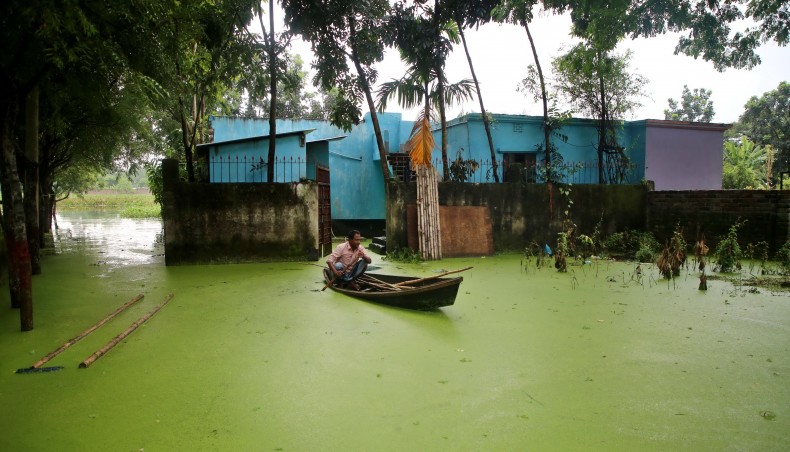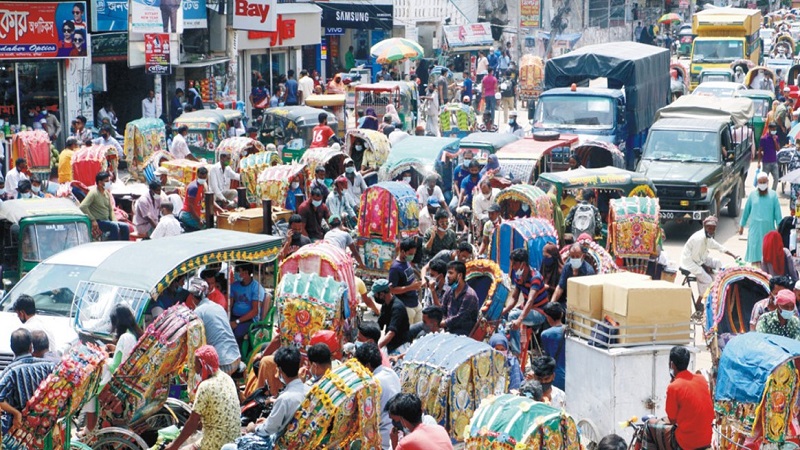Withdrawal of water from transboundary rivers during dry seasons over the years in upstream by India left major Bangladeshi rivers almost dead and incapable of dealing with monsoon floods, water management experts and geologists said at a webinar on Sunday.
They said that when India opens all its floodgates at barrages to get rid of excess water during monsoon Bangladeshi rivers are already reduced to mere streams and get overwhelmed to drain such a huge amount of water.
‘Rivers without a sustained flow of water do not have a fixed course and tend to move sideways under a sudden increase in water pressure,’ said S Nazrul Islam, founder of Bangladesh Environment Network.
‘The more rivers will move sideways, the worse the erosion will be,’ he said.
Bangladesh Poribesh Andolon organised the webinar to discuss the book that Nazrul recently published on rivers and sustainable development. The book has been published by the OXFORD University Press.
Nazrul presented the keynote paper showing that the Gajaldoba was the 16th barrage built on the upstream of the River Teesta through which India withdraws water and divert that throughout the dry season.
He said that the water flow in the Teesta remains at the minimum level through a part of the year before India suddenly starts releasing excessive water during monsoon.
The Teesta caused massive erosion this year as the ongoing monsoon flood passed its 51st day on Sunday making it the longest flood since 1998.
Similarly, numerous barrages built upstream the Ganges in India made the treaty for sharing water of the Ganges through the Farakka Barrage ineffective, he said.
He showed that there was hardly any change in water flow after the signing of the treaty in 1996.
‘Bangladesh must be more assertive in realising its rights of international river water share,’ said Nazrul.
India got the third-largest number of 5,100 large and major dams in the world, many of them built upstream blocking water flows toward rivers in Bangladesh, he said.
Professor Md. Khalequzzaman, who teaches geology at Lock Haven University, USA, said that water diplomacy should be the heart of all diplomacy of Bangladesh.
‘We need to make India realise that we are needed for ensuring regional peace and security and India can not do whatever it wishes with transboundary rivers,’ said Khalequzzaman.
He said that sedimentation in rivers was central to the birth of the Bengal delta but it reduced to half at present compared to its rate back in 1960s.
National River Conservation Commission chairman Muzibur Rahman Howlader said that rivers cannot drain water smoothly to the sea when its flow is disrupted with infrastructures.
‘We are seeing stagnation of water this year and I fear it would worsen in the years to come,’ said Muzib.
BRAC University emeritus professor Ainun Nishat, BAPA general secretary Sharif Jamil, its executive vice president Abdul Matin, and Dhaka University geology professor Badrul Imam also attended the webinar among others.













